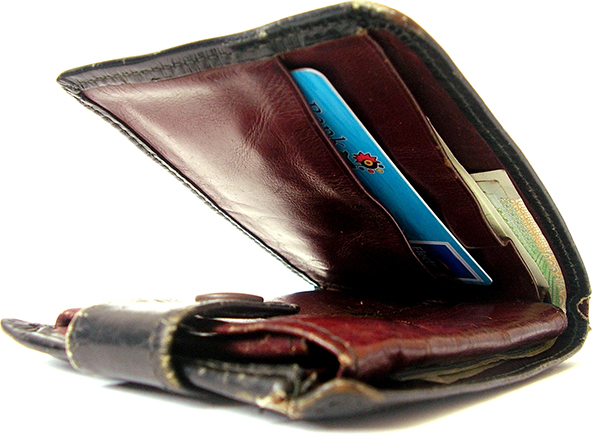Debit Card Fees May Be Gone, but Overall Banking Costs Go Up

We’ve received a lot of pushback for our assertion that card issuers will manage to find ways to make up for the huge revenue losses they’ve suffered as a result of the enactment of the Durbin Amendment last month. It seems to me that some of our readers felt that we were advocating for it, when we’ve been simply pointing out what should’ve been obvious to everyone who’s been paying attention.
Whether anyone likes it or not, in an open-market economy a business whose revenue has been sharply reduced by whatever cause must do whatever it takes, within the boundaries of the law, to recoup its losses. No viable business can afford to accept the new status quo and move on.
Banks Introduce New Fees, Ramp up Existing Ones
Sure enough, new bank fees are now popping up all over the place and existing ones are being ramped up, we learn from the New York Times. Here is what NYT’s Eric Dash’s has found out:
Need to replace a lost debit card? Bank of America now charges $5 — or $20 for rush delivery.
Deposit money with a mobile phone? At U.S. Bancorp, it is now 50 cents a check.
Want cash wired to your account? Starting in December, that will cost $15 for each incoming domestic payment at TD Bank.…
Even the much-maligned debit usage charges have effectively been bundled into higher monthly fees on checking accounts. Bank of America abandoned its $5 a month debit card usage fee in late October amid a firestorm of criticism. Yet, it more quietly raised the cost of its basic MyAccess checking account by more than $3 a month earlier this year. Monthly maintenance fees now run $12 a month, up from $8.95.
There it is. “Everything, it seems, has a price,” is Dash’s conclusion. Well, he is correct of course, but that’s always been the case. What’s different in the post-Durbin world is that banks are now passing on to consumers costs they were previously willing to absorb.
Winners and Losers from the Debit Fee Reform
The Durbin Amendment will cost card issuers about $7 billion in annual debit interchange fee revenues. However, as Dash’s and many other reports are making it clear, banks are finding ways to recoup their losses and, when the dust settles, they will not be worse off, and will probably be better off, than they were before the reform.
Whatever interchange revenues the banks lost were a gain for the merchants accepting their debit cards. Now, the big-box retailers, who were the major force behind the push for interchange reduction, were telling everyone who would listen that lower debit fees would translate into lower consumer prices, but that is a decision they alone can make and there are no signs that it is happening.
Actually, when it’s all said and done, the merchants’ cumulative gain will be lower than the issuers’ aggregate interchange loss, even if no transfer is made to consumers in the form of lower retail prices. The reason is that banks have launched a strong campaign to drive consumers away from debit and toward types of cards that were unaffected by the reform, e.g. credit and prepaid. Yet, even when these dynamics are accounted for, merchants will still be huge net winners.
So, if the upshot of the Durbin Amendment is that banks’ revenues will at worst be unaffected and the merchants’ — much higher, who will end up making up the difference? Yes, you guessed correctly. There is no one left in the picture, but the consumer group.
The Silver Lining
Yet, there is a silver lining of a sort for consumers and it is that issuers, in their push to drive their customers away from debit, are ramping up credit card rewards programs to a level not seen in a very long time, if ever. Of course, the best terms are reserved for consumers with the highest credit scores, but even mid-range scores are good enough for pretty decent offers these days.
Even sub-prime borrowers are now getting easier access to credit. According to Equifax, one of the three national credit reporting agencies, in the first half of this year 5.4 million new bank cards were issued to consumers with credit scores below 660 (which is Equifax’s definition of sub-prime). This represents a three-year high and a 27 percent increase over the same period of 2010. New credit limits rose at the same rate.
If used prudently, credit cards can be a much better payment option than debit. Not only can they give you cash back or airline miles, but they help build your credit history, which is unaffected by debit card use.
The Takeaway
The bottom line is that banks will find ways to make up for their lost revenues and banking will on aggregate become more expensive for consumers. However, that does not mean that your banking costs should necessarily rise. Most of the new fees can be avoided and you should learn under what conditions this can be done.
Moreover, if you can qualify for one of those credit card offers that come with a $200 cash back sign-up bonus, the bonus itself will probably be enough to cover any new bank fees you may have to pay for a year ahead, in case you are not able to get them waived. Even without the bonus, a moderately generous rewards program will help you achieve your objective.
Image credit: Aaronloringdavis.com.


